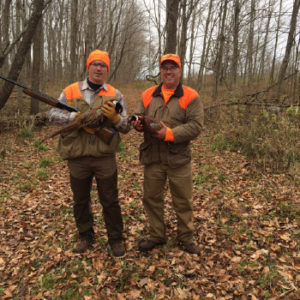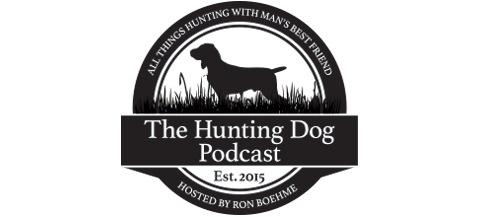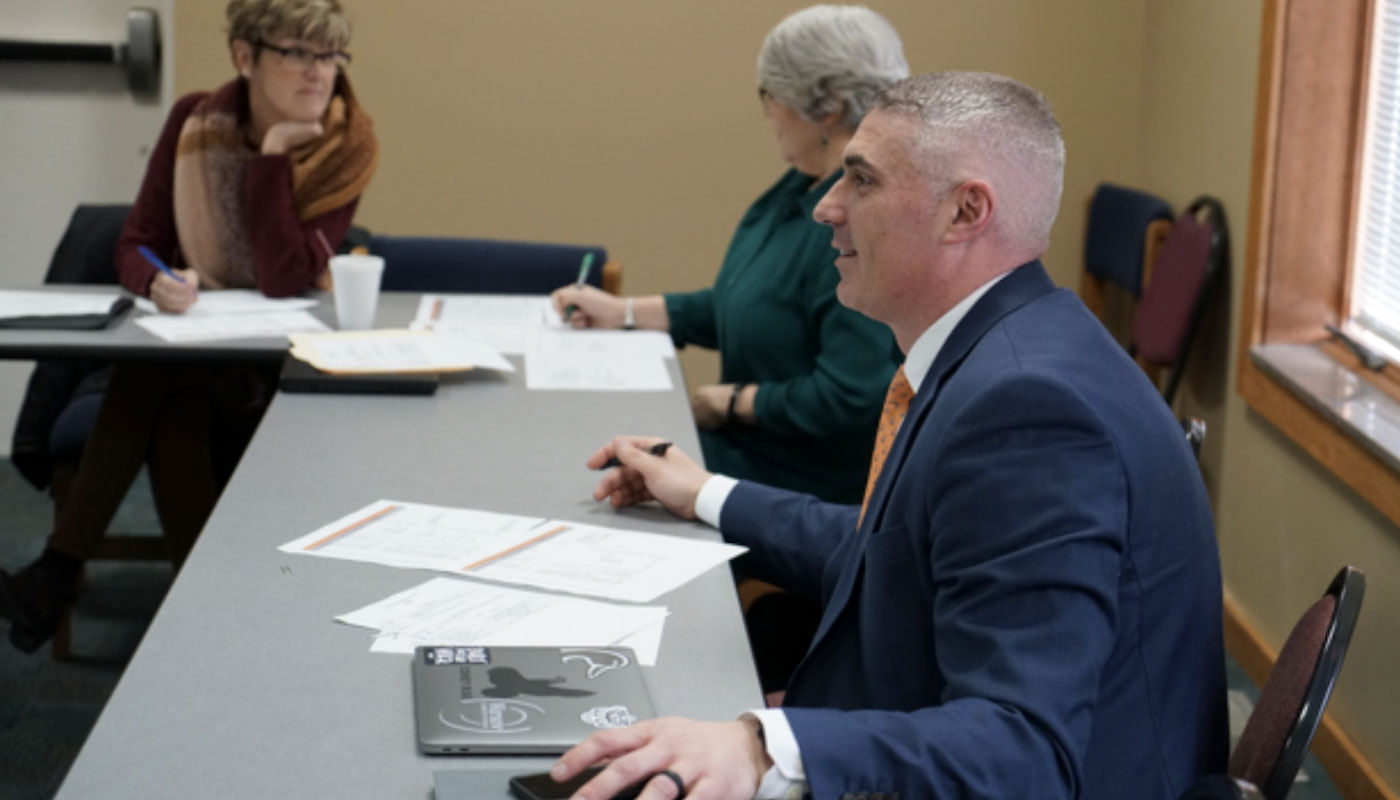White Collar Hunter
Author: David Robertson |
“So what do you do for fun?”
The question was posed to a group of us sitting around a boardroom table. Our educational consultant had just arrived from Boston and as part of “getting to know each other” we were asked the question, “What do you do for fun?”
I had a choice to make.
Do I tell the group the truth? That I love to be outside. That I love to fish. That I love to hunt. That I love the process of putting food on the table for my family that was harvested, butchered, and prepared by me?
Or, do I lie and tell them I like to read, or play with my kids, or workout? Well, maybe not lie, but certainly omit some of the truth.
Maybe it shouldn’t have been that tough a question. But when people think of hunters, I get the sense that sometimes they think of “gun-totin” guys in camo, driving big trucks, and chewing tobacco. (Not that there’s anything wrong with that!)
They don’t typically think of business suits, boardrooms, and soft shell oxford dress shoes.
Some of us just don’t fit in!
The life of a white collar professional who is also a hunter can get interesting. Whereas hunting was a part of mainstream America for decades, today’s decreasing number of hunters can make things challenging, especially for those of us who work in traditionally “professional” settings. It can be hard to answer questions honestly.

“How was your weekend?”
The truth; “I shot a limit of doves….they tasted delicious.”
“You shot mourning doves? Is that even legal?”
So instead, I tend to opt for vanilla answers like, “Oh it was good. Just spent some time with friends.”
I’m not sure why I feel guilty or feel the need to cover up my love of hunting. Maybe today’s politically charged, politically correct-focused mindset is impacting my thinking. Or maybe the fact that there just aren’t as many hunters as there were 30, 40 or 50 years ago makes us feel isolated. But whatever the reason, things can be a challenge for hunters in 2019.
So, what is a suit-wearing, white collar professional like me to do? Here are a few suggestions.
1. Be a responsible sportsman: Let’s face it. There are those out there who have agendas to end hunting as we know it. They may come from many perspectives, but the truth is, hunting is under attack. Often the media is used to highlight egregious acts by fellow hunters. Nothing makes me more angry than seeing a story about a hunter who hasn’t practiced good sportsmanship because it brings a bad name to us all. As a sportsman, we need to ensure that we’re doing things the right way.
2. Minds are changed through relationship: Yes, believe it or not, you can change someone’s mind without berating them on social media. In fact, I’m not sure anything on social media has ever changed anyone’s mind. When people I work with find out I hunt, they’re often surprised. They say I don’t seem like what their idea of a hunter is. Because I’ve built good relationships with those I work with, and because I”m not shoving my hunting rights in their face, they end up changing their perspective about hunters.
3. Focus on what’s relatable: While many people may not relate to getting up at 3am to sit in a duck marsh, an increasing number of people are interested consuming food in a clean, responsible way. So while people may not relate to hunting, they might relate to your desire to harvest, butcher, and prepare your own, “organic” food. Or while people may not relate to the harvesting of wild game, they may relate to viewing the beauty of nature. My point is, there are aspects of hunting that others who don’t hunt may relate to. I’ve found that focusing on those aspects of hunting that are relatable to others in our conversations and interactions helps others see that hunting is good for lots of reasons.
4. Focus on what’s relatable: While many people may not relate to getting up at 3am to sit in a duck marsh, an increasing number of people are interested consuming food in a clean, responsible way. So while people may not relate to hunting, they might relate to your desire to harvest, butcher, and prepare your own, “organic” food. Or while people may not relate to the harvesting of wild game, they may relate to viewing the beauty of nature. My point is, there are aspects of hunting that others who don’t hunt may relate to. I’ve found that focusing on those aspects of hunting that are relatable to others in our conversations and interactions helps others see that hunting is good for lots of reasons.
5. Be proud to hunt: Finally, don’t be ashamed to be a hunter. Although many have a stereotype of hunters that is not positive, we won’t change any minds about the good of hunting as long as we “stay in the closet” as hunters. Be proud to be a hunter and find ways to changes minds and perspectives about hunting. And, whenever possible, take someone who’s never hunted along! There’s nothing better than actually taking someone hunting to change their mind about hunting.
Whether you’re a blue collar worker, or white collar worker like me, it’s essential for the future of hunting that we each do our part to help changes minds about hunting. So while I may find it hard to explain to my co-worker the pheasant blood that leaked from my cooler in the back of my car from last weekend, hopefully, I’ve done a good job of building a relationship that helps others see that hunters are typically great people who care deeply about environment and fish and game that call it home.


